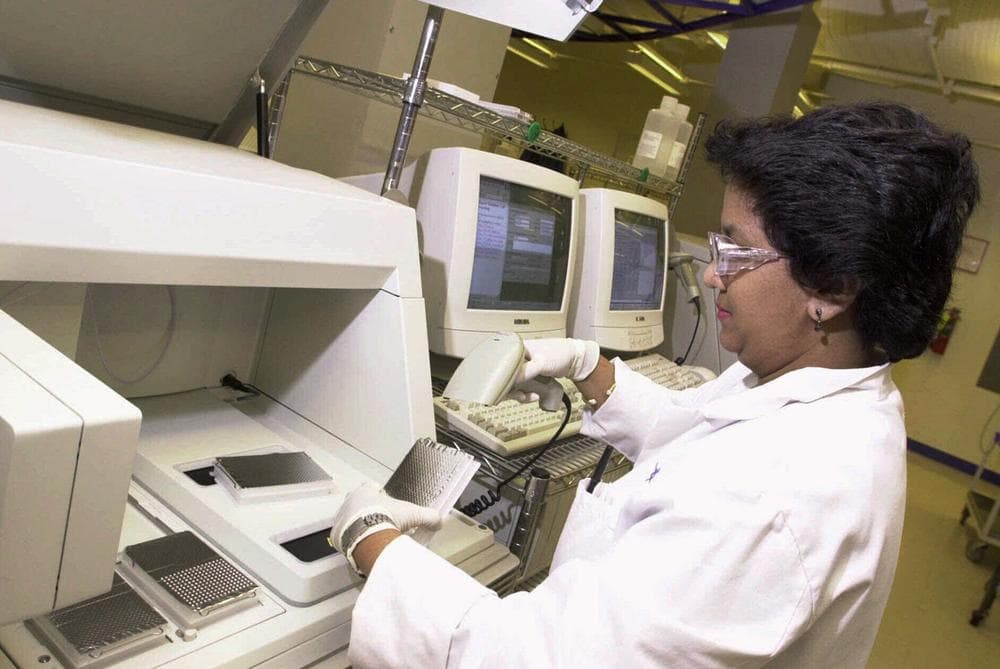Advertisement
Genome Sequencing Alters Treatment Of Cancer
Resume
Doctors and researchers are working on a new technique for stopping cancer. It's called genome sequencing, decoding both the cancer cells in a tumor and the healthy cells in the patient.
They're looking for the genes that drive a cancer and what they are finding is that one woman's breast cancer may have different genetic drivers than another woman's and in fact may have more in common with a man's prostate cancer or another patient's lung cancer.
The result is a cocktail of treatment with different drugs, similar to the tratment for HIV.
The new developments are chronicled in a New York Times series this week, written by reporter Gina Kolata. The Times reports:
Researchers differ about how soon the method, known as whole genome sequencing, will be generally available and paid for by insurance — estimates range from a few years to a decade or so. But they believe that it has enormous promise, though it has not yet cured anyone.
With a steep drop in the costs of sequencing and an explosion of research on genes, medical experts expect that genetic analyses of cancers will become routine. Just as pathologists do blood cultures to decide which antibiotics will stop a patient’s bacterial infection, so will genome sequencing determine which drugs might stop a cancer.
- New York Times: Genetic Gamble — New Approaches To Fighting Cancer
Guest:
- Gina Kolata, New York Times reporter
This segment aired on July 10, 2012.